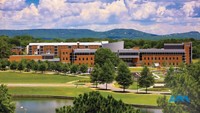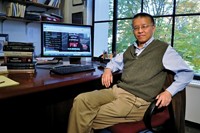Advertisement
Grab your lab coat. Let's get started
Welcome!
Welcome!
Create an account below to get 6 C&EN articles per month, receive newsletters and more - all free.
It seems this is your first time logging in online. Please enter the following information to continue.
As an ACS member you automatically get access to this site. All we need is few more details to create your reading experience.
Not you? Sign in with a different account.
Not you? Sign in with a different account.
ERROR 1
ERROR 1
ERROR 2
ERROR 2
ERROR 2
ERROR 2
ERROR 2
Password and Confirm password must match.
If you have an ACS member number, please enter it here so we can link this account to your membership. (optional)
ERROR 2
ACS values your privacy. By submitting your information, you are gaining access to C&EN and subscribing to our weekly newsletter. We use the information you provide to make your reading experience better, and we will never sell your data to third party members.
Research Funding
Scripps agrees to pay $10 million to settle lawsuit over misspent NIH funds
‘Soft money’ policy led to improper charges, whistleblower alleged
by Andrea Widener
September 17, 2020
| A version of this story appeared in
Volume 98, Issue 36


Scripps Research has agreed to pay a $10 million settlement for charging the US National Institutes of Health for time its researchers spent on nongrant activities.
From 2008 to 2016, Scripps failed to have a system in place to properly account for researchers’ time, according to a statement about the settlement from the US Department of Justice (DOJ). As a result, Scripps improperly charged the NIH for time spent on nonresearch activities.
“The NIH has finite resources to support important research across the nation,” Jeffrey Clark, acting assistant attorney general for the DOJ’s Civil Division, says in the statement. “Today’s settlement demonstrates our commitment to protect those resources by ensuring that NIH grants funds are used for the purposes for which they were intended.”
The case was originally brought by Thomas Burris, a professor at Scripps’s Florida campus from 2008 to 2013. He brought the suit under the False Claims Act, which allows whistleblowers to file on behalf of the government.
According to his complaint, the main problem was Scripps’s “soft money” policy, which required researchers to cover 100% of their salary with grants. At the same time, faculty had to apply for new grants, serve on committees, teach, and perform other duties that were not directly part of their research.
Burris estimated that during his tenure at Scripps he spent 20–50% of his time applying for new grants, a proportion similar to other scientists there. But 100% of his salary was paid by current NIH grant funds, according to the complaint.
This “accounting discrepancy” made up less than one-half of 1% of the institute’s federal funding during that time, Scripps says in an emailed statement. “No questions were raised concerning the quality or conduct of our research or the contributions of our faculty to science, innovation, and the improvement of human health,” the statement says.
Burris, who is now vice president for research and graduate studies at the University of Health Sciences and Pharmacy in Saint Louis, will receive $1.75 million as part of the settlement.





Join the conversation
Contact the reporter
Submit a Letter to the Editor for publication
Engage with us on Twitter